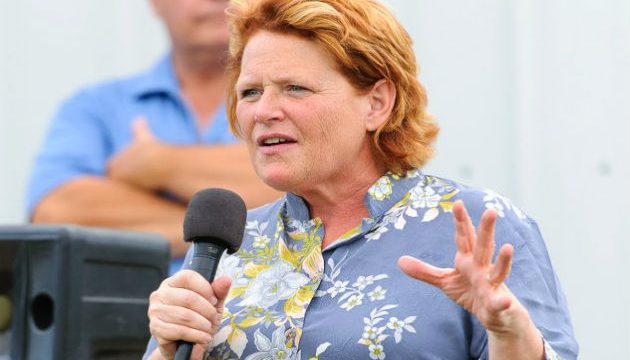Heidi Heitkamp Backs Legislation Chilling Free Speech

It’s no secret that Senator Heidi Heitkamp is a supporter of the DISCLOSE Act. She said as much during her 2012 campaign. But today Heitkamp sent out a press release announcing that she is co-sponsoring the legislation which requires that private groups, making independent political expenditures to advance their causes, report their spending and contributions to the FEC.
The legislation, the “Democracy is Strengthened by Casting Light on Spending in Elections, or DISCLOSE,” Act, would require organizations that spend money on elections to disclose their spending on activities as well as their major individual sources of funding in a timely manner.
Additionally, the DISCLOSE Act requires any covered organization that spends $10,000 or more during an election cycle to file a report with the Federal Election Commission within 24 hours, detailing the amount and nature of each expenditure more than $1,000 and the names of all of its donors who gave $10,000 or more. Transfer provisions in the bill prevent donors from using shell organizations to hide their activities.
“There are a lot of groups that are spending a lot of money at a level that is almost corrupting in politics. A lot of that money is spent invisibly,” Heitkamp said. “That means that people can put money into a super PAC weeks before an election and no one will know who’s funding those campaigns.”
Private citizens organizing themselves into private organizations with private dollars and spending their money to promote the political causes they agree with?
It’s almost like these people think it’s a free country, or something.
What’s chilling about the DISCLOSE Act is that it’s clearly an effort by the political class to make the supporters of private political organizations vulnerable to attacks. As we’ve seen with the IRS targeting scandal, among other issues, the federal government can make life hell for people with the wrong politics.
I’m all for transparency in politics when we’re talking about public officials. We should always know who is giving money to our public officials, and how much.
But extending those requirements to private groups is a bridge too far.




